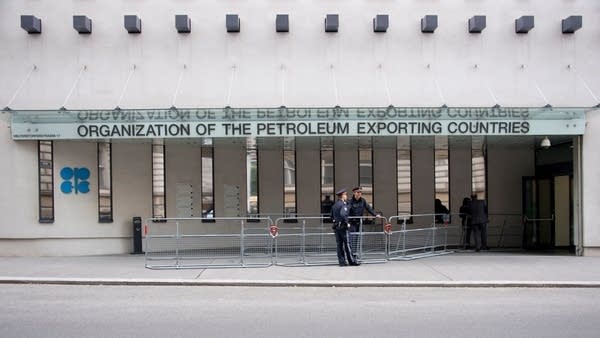Delay of OPEC+ meeting leaves questions about oil supply cuts
The expectation was that OPEC countries would continue cutting back supply. Some think the delay may mean there’s disagreement about that.

OPEC+, the group of oil-producing nations that decide together how much crude oil they’ll pump into the market, is delaying a meeting it had scheduled this weekend until next week.
The expectation going into this meeting was that OPEC countries would continue cutting back supply, something they started earlier this year in an effort to boost prices. But according to the folks who pay close attention to these kinds of things, the delay may mean there’s some disagreement in the group over whether to keep those cuts going and by how much.
A lot of OPEC countries would really like it if the price of oil was a bit higher. The main reason it’s been relatively low recently, said Ellen R. Wald at the Atlantic Council, is that “there’s too much supply and not enough demand.”
So OPEC is considering more supply cuts, assuming “that if they can decrease supply, that that will help push oil prices up,” Wald said.
The problem for them is, there are a lot of non-OPEC oil producers who aren’t cutting supply, said Mark Finley, a fellow at Rice University’s Baker Institute for Public Policy. In fact, some have been expanding production, like the U.S. and “places like Guyana, Brazil, Canada,” Finley said.
Finley said some of that’s due to past investment decisions around oil production that are only now coming online, “decisions that were made several years ago when prices were much higher.”
All that means that even if OPEC cuts production further, we could still see a surplus of oil next year, as the head of the International Energy Agency told Reuters this week.
On the demand side, some analysts — including the IEA — have predicted continued growth.
But Amy Myers Jaffe at New York University said that’s no sure thing. For one, there are questions about China, which she said has been stockpiling oil.
“Now we’re getting to this tricky period where is China’s economy recovering or not? Because if it’s not recovering, they have an awful lot of inventory,” Jaffe said.
And elsewhere in the world, “interest rates are high. And a lot of economies have high debt and headwinds. And so I think the jury’s really out on this optimistic view of demand for 2024,” she explained.
Jaffe did say that if demand for oil fails to catch up to supply, gas prices might keep coming down next year.




